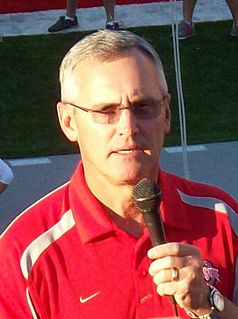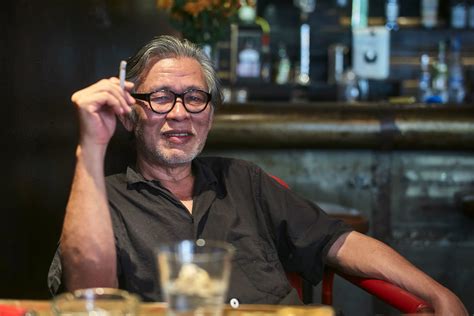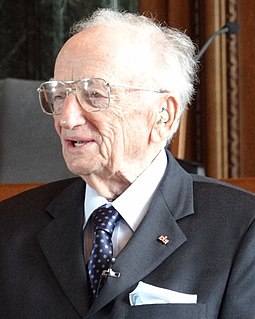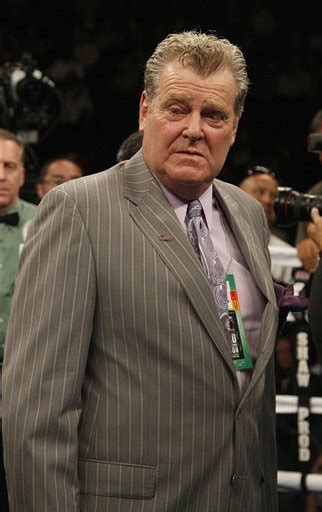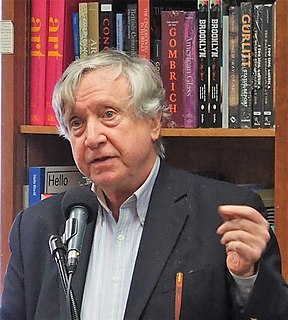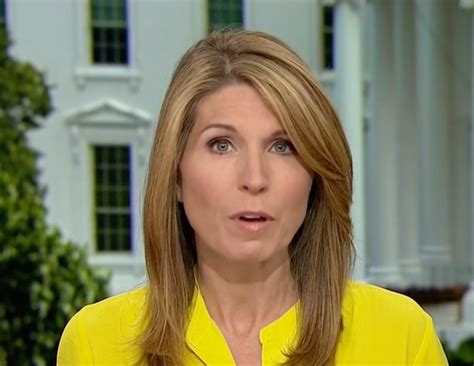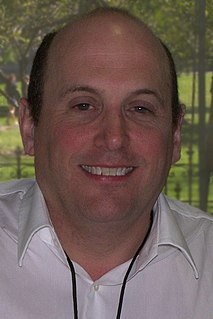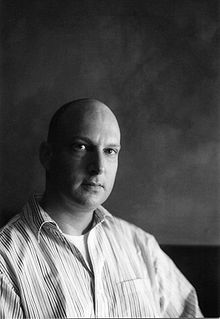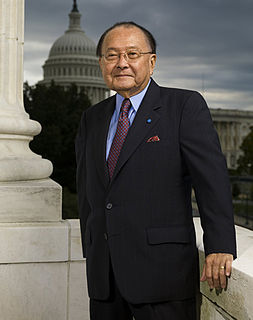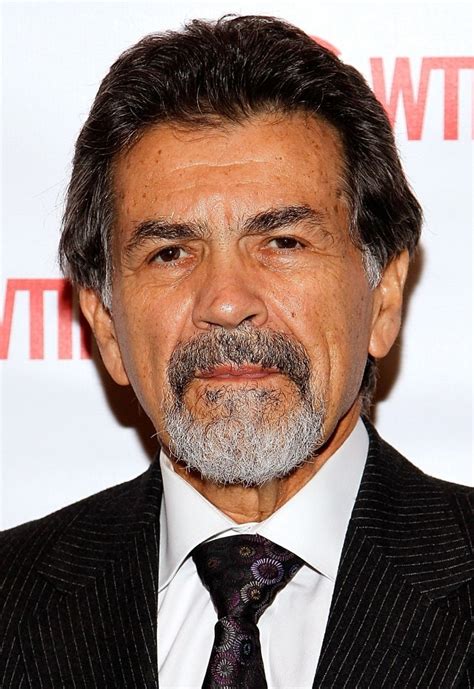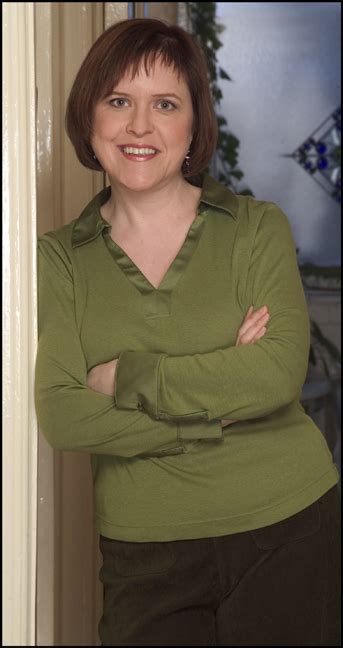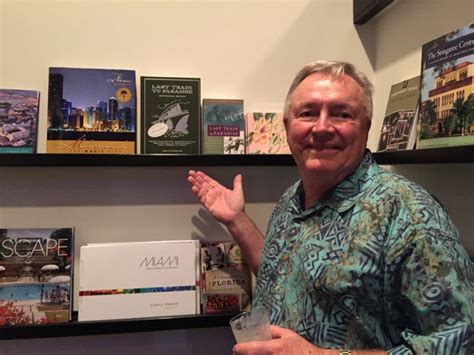Top 250 Aftermath Quotes & Sayings - Page 4
Explore popular Aftermath quotes.
Last updated on April 15, 2025.
If we didn't have the Electoral College there would have been no George W. Bush presidency. Algore would have been elected. The Democrats have not gotten over that, and they never will get over the recount, the aftermath of that election in 2000. They are still animated by it today. It is a significant portion of the rage and anger they carry around with them every day, so they want to get rid of it.
Lifes That Way was an extraordinarily difficult book to write, because it wasnt written as a book. It was written as a journal of events that were happening as I wrote it, without the space or time either to digest or analyze those events and without the hindsight and peace that writing in the aftermath would have provided.
We need to have a modicum of faith in people's common sense, creativity and will to survive and prosper even in the face of great difficulties and obstacles. If people could keep society running in the aftermath of the Black Death, they could keep it running after the U.S. government defaulted on its debt.
America is the one place in the world where I just innately understood [that] South Africa and the United States of America have a very similar history. It's different timelines, but the directions we've taken and the consequences - dealing with the aftermath of what we consider to be democracy, and realizing that freedom is just the beginning of the conversation, that's something I've learned.
In the aftermath of 9/11 and in the build-up to the invasion of Iraq, few questioned the idea that the United States was likely to be the extant superpower for several decades to come. Few anticipated how quickly the neoconservative project would run into the sands - or that China would rise so quickly.
Before I became President, in the aftermath of the Vietnam War, there had been fairly dramatic, and I think excessive, reductions in the capability of our military forces, and as a former military man myself - I was a professional naval officer, a submarine officer - I thought it was better, on a step-by-step, very carefully planned way, to increase the technical, or technological, capability of our weapons systems.
As a German philosopher writing in the aftermath of the Nazi regime, Marcuse understood the sleep inducing force of indoctrination, its power to make people forget and forfeit their own real interests. "The fact that the vast majority of the population accepts, and is made to accept, this society does not render it less irrational and less reprehensible," he wrote. "The distinction between true and false consciousness, real and immediate interest still is meaningful."
The stock market in Japan was half the world market and where has the Japan economy gone since the 1990s? Nowhere. They've been struggling for two decades in the aftermath of a massive bubble that's collapsed. They've tried to work their way out of it by printing even more money and it hasn't worked. Now, I'm saying this is what all the central banks are doing. There is no honest interest rate in the world today.
I told (my wife) that there's a three-month aftermath that you better be able to handle, because it's real. I think the worst thing we could do is push it away and say, 'Hey, it's not happening. We don't have time for this,' because we worked so hard to get to that point. ... But the reality is (our opponents the next year) are going to come after us.
If it wasn't for this person's privacy, I'd be able to talk pretty freely about this subject on a personal level. The record's about not her. It's about my struggles through years of dealing with the aftermath of lost love and longing and just mediocrity and just bad news, like life stuff. And in the [record], where the title comes from, the lyrics are actually a conversation between me and another girl, not this Emma character.
Saigon, U.S.A. aptly documents the birth of a new American community, uprooted in the aftermath of war and forever torn apart by the wounds of the past, yet one capable of healing against all odds. An engrossing yet succinct film that captures not only a major incident in Vietnamese American life, but also an important chapter of American history. A profound film that manages to confront us with the deepest sorrow while allowing us to be hopeful about what it means to be human.
A different kind of pleasure surfaced in the aftermath, the pleasure of seeing the towers fall time and again, the experience of being entranced by the visual spectacle, and then also the very graphic forms of public mourning for exemplary citizens (taking place at the same time as the refusal to mourn the undocumented, the foreign, gay and lesbian lives lost there, for example). I am not sure that the guilt over the pleasure re-installed the good citizen.
This year marks 20 years since the Rwandan genocide -- the world's greatest humanitarian tragedy of the late 20th century. The international community had pledged 'never again' in the aftermath of the genocide in the former Yugoslavia and Rwanda in the 1990s. Yet, we are witnessing today a different type of humanitarian disaster unfolding in Syria and Iraq.
We like democracy because why? The pathologies of the U.S. version are so obvious in the aftermath of the latest averted crisis that we need to ask ourselves whether it’s worth it - and why electoral democracy hasn’t self-destructed before. Should Tunisians or Egyptians opt for the Chinese model, where rational autocrats may restrict rights, but no one threatens to blow up world markets in the name of an 18th-century tax protest?
What has happened here [aftermath of 9/11] is not war in its traditional sense. This is clearly a crime against humanity. War crimes are crimes which happen in war time. There is a confusion there. This is a crime against humanity because it is deliberate and intentional killing of large numbers of civilians for political or other purposes. That is not tolerable under the international systems. And it should be prosecuted pursuant to the existing laws.
For most couples who come to me - especially in the aftermath of the revelation of an affair, when they are in a state of crisis and fear the loss of a predictable future - they start to have conversations for the first time about love, sex, monogamy, and marriage. Most couples don't negotiate or don't even converse about any of these things until the crisis of the affair has actually forced them to. Why does it take infidelity to get us talking about the stuff that should be there from the start?
It was good to see an athlete that emotional in the aftermath of defeat, to show that losing isn't good enough. Fighting hard and trying your best isn't good enough. It showed that the only thing good enough in his eyes was winning. It caused a tremendous amount of emotion from him when he didn't achieve that.
I'm trying to think of what happens if we take expulsion off the table for everyone, and instead think about the rights of those who have been expelled already, which would include the various rights of refugees who came to Israel in the aftermath of WWII, but also those from other countries, and what rights the Palestinians have who have been dispossessed of their lands and homes.
Maya Jasanoff's Liberty's Exiles places the loyalist experience and the aftermath of the American Revolution in an entirely new light. Alongside the Spirit of 1776, Jasanoff gives us the Spirit of 1783, dedicated to remaking the mighty British Empire, and then offers a stunning reinterpretation of the Loyalists' complicated role in that remaking. Her meticulously researched and superbly written account is historical revision at its finest, and it affirms her place as one of the very finest historians of the rising generation.
People always related to President Bush, but in the aftermath of Hurricane Katrina and the Iraq War, his numbers collapsed because people didn't feel like he handled those properly. Obama is the inverse. He was elected because he was an extraordinary guy, but the fact that he isn't ordinary has turned out to be politically damaging.
This is how we honor 53 dead, innocent people who had nothing to do with their deaths. They just were in the wrong place at the wrong time, when a bigot decided to take 'em out. And all of a sudden we're judging the aftermath as to whether or not [Barack] Obama's an effective president? For crying out loud!
Any onset of increased investor caution elevates risk premiums and, as a consequence, lowers asset values and promotes the liquidation of the debt that supported higher asset prices, ... This is the reason that history has not dealt kindly with the aftermath of protracted periods of low risk premiums.
In the aftermath of the oh-so-predictable crash, the Bitcoin fanatics have begun marshaling out excuse after excuse for why this non-investment investment lost so much of its value so fast. One was that hackers attacked some of the exchanges for Bitcoins and crippled it. Really? A hacker can wreck an entire market?
The stark and tragic images of human suffering in the aftermath of Hurricane Katrina have reminded us yet again that civil rights and equal rights are still the great unfinished business of America. The suffering has been disproportionately borne by the weak, the poor, the elderly and infirm, and largely African-Americans, who were forced by poverty, illness, unequal opportunity to stay behind and bear the brunt of the storm's winds and floods. I believe that kind of disparate impact is morally wrong in this, the richest country in the world.
'Life's That Way' was an extraordinarily difficult book to write, because it wasn't written as a book. It was written as a journal of events that were happening as I wrote it, without the space or time either to digest or analyze those events and without the hindsight and peace that writing in the aftermath would have provided.
Recalling the aftermath of her father's death from alcoholism at age 42, this memoirist reminisces: I couldn't deny that our life was so much better now, but I did miss him. For all the misery he caused, I knew with certainty that he loved us. Those aren't things you can weigh or measure away. ... They're not opposites that cancel each other out. They're both true at the same time.
This is the very boring part of eating disorders, the aftermath. When you eat and hate that you eat. And yet of course you must eat. You don’t really entertain the notion of going back. You, with some startling new level of clarity, realize that going back would be far worse than simply being as you are. This is obvious to anyone without an eating disorder. This is not always obvious to you.
The easiest period in a crisis situation is actually the battle itself. The most difficult is the period of indecision - whether to fight or run away. And the most dangerous period is the aftermath. It is then, with all his resources spent and his guard down, that an individual must watch out for dulled reactions and faulty judgment.
Watching the spontaneous acts of kindness, compassion, and generosity, courage, and bravery in the aftermath of the Boston marathon bombings was so deeply moving. It is in our nature to want to help, to serve, to be part of something larger than ourselves. We have a desire to connect with others. We want to make a difference in the world. I would call this a spiritual longing to be whole, interrelated, interconnected.
We didn't hear a word about the Clinton Global Initiative. We didn't hear a word about all the masterful, wonderful things they've done in the aftermath of the earthquake in Haiti. Why not? If you're extolling the virtues of the change, "She [Hillary Clinton] makes more change, she's done more change than anybody in my lifetime! I've never met somebody who is better change."
This is my favorite part. It starts and ends here. The pebbles shine, the plan worked, Hansel Triumphant. Lesson number one: be sneaky and have a plan. But the stupid boy goes back, makes the rest of the story postscript and aftermath. He shouldn’t have gone back. And this is the second lesson I took from the story: when someone is trying to ditch you, kill you, never go back.
What is kind of beautiful about Katrina is that even though the media and officials are working hard at telling us everyone in New Orleans was a monster, in the immediate aftermath more than 200,000 people invite displaced strangers into their homes through hurricanehousing.org and an uncounted horde go to New Orleans and the Gulf Coast to give, to love, to be in solidarity, and to rebuild.
Suicide is a particularly awful way to die: the mental suffering leading up to it is usually prolonged, intense and unpalliated. There is no morphine equivalent to ease the acute pain, and death, not uncommonly, is violent and grisly. The suffering of a suicidal is private and inexpressible, leaving family members, friends and colleagues to deal with an almost unfathomable kind of loss, as well as guilt. Suicide carries in its aftermath a level of confusion and devastation that is, for the most part, beyond description.
Class certainly loomed large in Katrina's aftermath. Blacks of means escaped the tragedy; blacks without them suffered and died. In reality, it is how race and class interact that made the situation for the poor so horrible on the Gulf Coast. The rigid caste system that punishes poor blacks and other minorities also targets poor whites.
There is a myth that the New Deal programs on their own pulled the US out of the Great Depression and created the conditions for the economic boom after World War II. As an economist, I can tell you, that is not true. In reality, it was mainly World War II that launched the boom - the massive war mobilization, the horrifying destruction and death caused by it, and then the reconstruction in its aftermath. he US was the only advanced capitalist country that was not bombed during the war.
For we have a choice in this country. We can accept a politics that breeds division, and conflict, and cynicism. We can tackle race only as spectacle - as we did in the OJ trial - or in the wake of tragedy, as we did in the aftermath of Katrina - or as fodder for the nightly news. We can play Reverend Wright's sermons on every channel, every day and talk about them from now until the election, and make the only question in this campaign whether or not the American people think that I somehow believe or sympathize with his most offensive words.
The fears of recession in the aftermath of Black Monday have turned to fears of the economy racing ahead too fast, with inflation edging up and a substantial current account deficit... People understandably feel more confident about their future than they've done for decades, but as a result they have been borrowing more and saving less... Coming on top of a massive income investment boom, it's all been just a bit too much of a good thing.
Corporations often partner with government after natural disasters, as many companies did in the aftermath of Hurricane Katrina in 2005. As a rule, however, long-term civic/corporate partnerships are still rare .But this need not remain the status quo, as many opportunities are available for such partnerships.
The Brightwood Stillness is a novel I could not put down. On the surface, it is the lives of normal people in trying circumstances. Deeper, it is an uncannily perceptive exploration of male psychology… Pomeroy is a brave new voice capable of taking us beyond the clichés of war and its aftermath and into the secret heart of every man. This is simply the best novel I’ve read in a long time.
The traditional doctrine of man and not the measurement of skulls and footprints is the key for the understanding of that anthropos who, despite the rebellion of Promethean man against Heaven from the period of Renaissance and its aftermath, is still the inner man of every man, the reality which no human being can deny wherever and whenever he lives, the imprint of a theomorphic nature which no historical change and transformation can erase completely from the face of that creature called man.
I still remember how upset I was in the aftermath of President Obama's election, where people in Republican leadership didn't say that, "Hey, I want to focus on the issues and values of our country," but, "My number one goal is to see that Barack Obama is not a two term president." That to me is outrageous. I would never do that. My number one goal is to fight to protect poor people, ethnic and religious minorities, working class folks.
The actions we took in the aftermath of 9/11 were harsh but necessary and effective. These steps were fully sanctioned and carefully followed. The detention and interrogation of top terrorists like Abu Zubaydah, Khalid Sheikh Muhammed and Abu Faraj al-Libbi yielded breakthroughs which have kept this country safe.
A damnably readable, streamlined, yet deeply researched work. Skipping the ancestors and aftermath of conventional biography, Max gives us the man, his work, and his times-the niceties of which (so complicated, so exquisitely intertwined) Max articulates with, well, Wallace-like lucidity and wit. Above all this is the story of a touching young man who insisted on being something better than simply the smartest person in the room.
As a coach, the more experience you have, the more you're around players, it helps so you see how guys learn, ways that are effective to reach different people. You see the aftermath of all the things that happened; you don't just see what happens at the game, you see what happens after the game, the followthrough, and those types of things.
Only with gun violence do we respond to repeated tragedies by saying that mourning is acceptable but discussing how to prevent more tragedies is not. But that's unacceptable. As others have observed, talking about how to stop mass shootings in the aftermath of a string of mass shootings isn't 'too soon.' It's much too late.
One of the first big bubbles, of course, was the huge and horrible South Sea Bubble in England. And the aftermath was interesting. Many of you probably don't remember what happened after the South Sea Bubble, which caused an enormous financial contraction, and a lot of pain. They banned publicly traded stock in England for decades.
Nowadays, people resort to all kinds of activities in order to calm themselves after a stressful event: performing yoga poses in a sauna, leaping off bridges while tied to a bungee, killing imaginary zombies with imaginary weapons, and so forth. But in Miss Penelope Lumley's day, it was universally understood that there is nothing like a nice cup of tea to settle one's nerves in the aftermath of an adventure- a practice many would find well worth reviving.
There is an unbroken line of police violence in the United States that takes us all the way back to the days of slavery, the aftermath of slavery, the development of the Ku Klux Klan. There is so much history of this racist violence that simply to bring one person to justice is not going to disturb the whole racist edifice.
Grief is not just a series of events, stages, or timelines. Our society places enormous pressure on us to get over loss, to get through grief. But how long do you grieve for a husband of fifty years, a teenager killed in a car accident, a four-year-old child: a year? Five years? Forever? The loss happens in time, in fact in a moment, but its aftermath lasts a lifetime.
Maybe it's because we as writers are alone so often, are so attuned to listening to the run of our own thoughts, that we find it more natural to write down the thoughts rather than the deeds of our characters. But speaking as a teacher who has spent some twenty years slogging through manuscripts where thoughts and exposition pile up as thick as the aftermath of a California mudslide, I can attest to the power of the evocative detail, gesture, or figment of speech.











